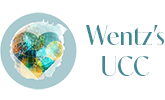Today I want to pick up on a theme lifted this past Sunday. Wentz’s, we are called to be “peacemakers” in this moment. Yes, you and I are called to this holy work right in midst of today’s society, rife with turmoil and conflict. This call to become peacemakers is more crucial than ever. As Jesus reminds us in Matthew 5:9, being a peacemaker is not just a blessing, but a divine calling for the children of God. However, this calling requires a certain level of competency and understanding of differing perspectives. To truly be bridge builders, repairers of gaps, doers of the gospel, offering hope we must actively seek out and empathize with viewpoints that are different from our own.
To be effective peacemakers in our modern world, we must take an active role in our own education and seek out diverse perspectives. This involves not just passive consumption of information, but active reading, watching, and listening. It also includes engaging in prayer and reflection. To be a peacemaker is knowing that true peace does not mean there is an absence of tension. However, it does mean there is always the presence of justice and mercy. Both need to be working in tandem because justice without mercy is just revenge and retribution dressed up to be more palatable. By actively seeking to understand and empathize with others, we can develop the necessary skills to bridge cultural, religious, political, and socio-economic divides and truly love our neighbors as ourselves.
The role of a peacemaker in the 21st century extends far beyond just resolving conflicts; it involves actively working to create a society based on empathy, understanding, and acceptance. In a time where division and intolerance seem to dominate, it is more important than ever to embrace our calling as children of God and strive toward peace. By continuously learning and seeking to understand, we can become effective peacemakers and positively impact our communities and the world.
